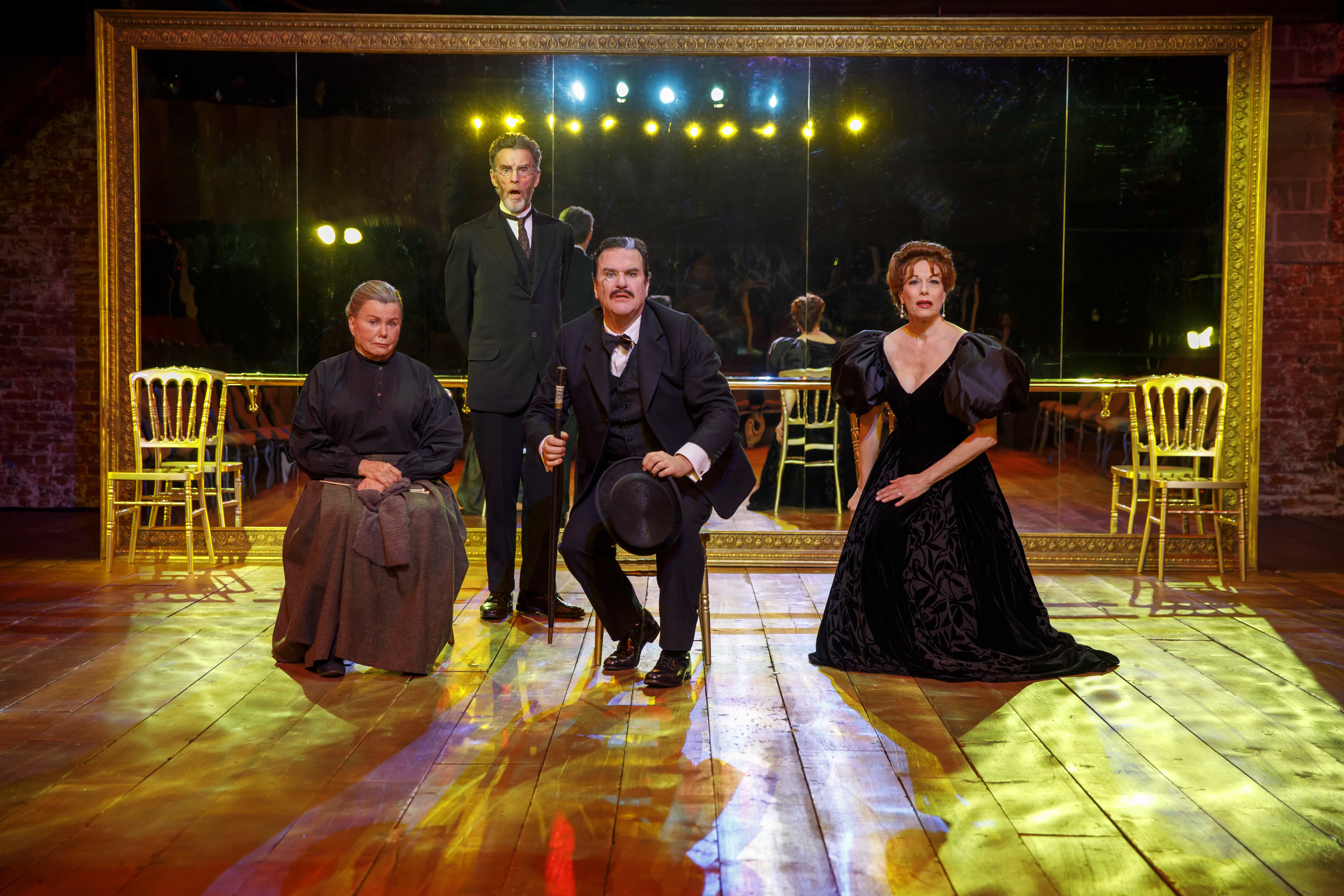Terrence McNally has been a steady contributor as a playwright ever since his first play, And Things That Go Bump In The Night landed on Broadway in 1963. It didn’t bump for long; it played a few previews, then folded after 8 performances. But it lasted long enough for the young author to confirm to himself that theatre was where he wanted to spend the rest of his life – and that’s exactly what he’s done. Along the way, he’s picked up a Tony or two, and on his occasional visits to musical theater, television and film, two more Tonys and other awards which have placed his career among the most distinguished.
He’s been called “a probing and enduring playwright” whose varied interests have brought us a worthy list of plays which explore human relationships, frequently of gay men. He never thought of himself as especially revolutionary; but his early works which included his first play and Sweet Eros, were considered ahead of their times. If so, the times caught up with him, because his plays from The Ritz in 1974 all the way through Love! Valor! Compassion! in 1994 established him as a writer who appealed to most crossover audiences.
McNally has won four Tony Awards for plays and musical books in his fruitful career. Master Class in 1995 was an example of one of his plays revolving around the larger than life stars who clearly attracted him. And now we have Fire and Air to give us a glimpse into the relationship of Vaslav Nijinsky and Sergei Diaghilev – a dancer and a choreographer/producer – who brought drama and excitement to the earliest days of the 20th-century stage.

Nijinsky was the youth whom the middle-aged ballet impresario Diaghilev discovered, nurtured, and shaped; around whom the Master built the Ballets Russes in 1909. Though that organization lasted only 20 years, it challenged the centrality in ballet of the idealized female body; it was the male body that was of special importance to Diaghilev’s visual world. Along with other dancers, he used visual artists and designers like Pablo Picasso and Salvador Dali and composers like Debussy and Stravinsky with whom he created works like Rite of Spring and L’Après-midi d’un Faune.
Bits and pieces of this information are scattered throughout the two acts of Fire And Air, and it comes to us through the dialogue McNally has given to a handful of characters connected to the two principals. Marsha Mason, now grown into a formidable character actress, plays Dunya, the servant who has tended Nijinsky since childhood. She has little to do but knit and prepare soup for the man she still treats as a boy, but she listens well and is very much present throughout the entire work. John Glover is Dmitry Filosofov, Diaghilev’s cousin who has been close to the flame that has always attended the Master. These two had been particularly close as children, and they share happy memories of their more innocent days, which Filosofov has always hoped to experience again.
Marin Mazzie is Misia Sert, a wealthy supporter who yearns to be treated as more than a backer. Mme. Sert seems to take satisfaction merely being in the presence of talent while having none of her own except her ability to move attractively through life dressed to the nines. At the performance I saw, understudy Leenya Rideout played the role by reading it from the script, but she knew the moves and spoke the words clearly enough. The brilliant Nijinsky, the youth whose fiery talent is fueled by the air that is Diaghilev, is in the hands of James Cusati-Moyer who brings to it the right look; but from the start it’s clear that Nijinsky has mixed feelings about the imbalance in the influence and control that is imposed on him by his older and more established mentor. He needs to learn, but he has strong convictions of his own, and the two are often at odds with each other.
McNally supplies a lot of facts, but we can find them all in Wikipedia; what is most lacking in the play is a stripping away of what happened and dealing more succinctly with why it happened. These characters (and they include Leonide Massine, the young dancer whom Diaghilev adds to the mix) are all helpful in delivering director John Doyle’s vision of a well-ordered reading of the play, which does not dig very deeply into the inner workings of these complex characters. With the simple use of a half dozen gilded wooden chairs and a highly polished floor that indicates an elegant world, we are asked to supply the rest. I would call Fire and Air more of a documentary than a rich and satisfying play. In the program notes, Mr. Doyle calls the play “challenging,” but to my mind, it only challenges because it leaves too much to its audience to find in it material that is moving and meaningful.
Running Time: Two hours and 15 minutes, with one intermission.
Fire and Air plays through March 2, 2018, at Classic Stage Company, 136 East 13th Street, in New York, NY. To purchase tickets, go online.




